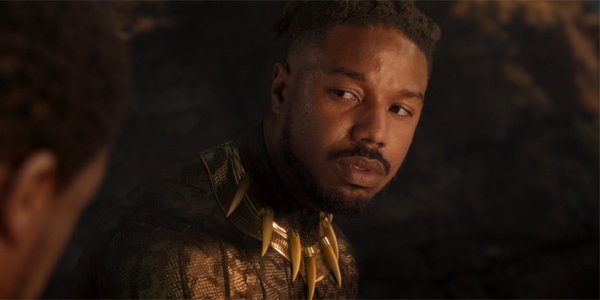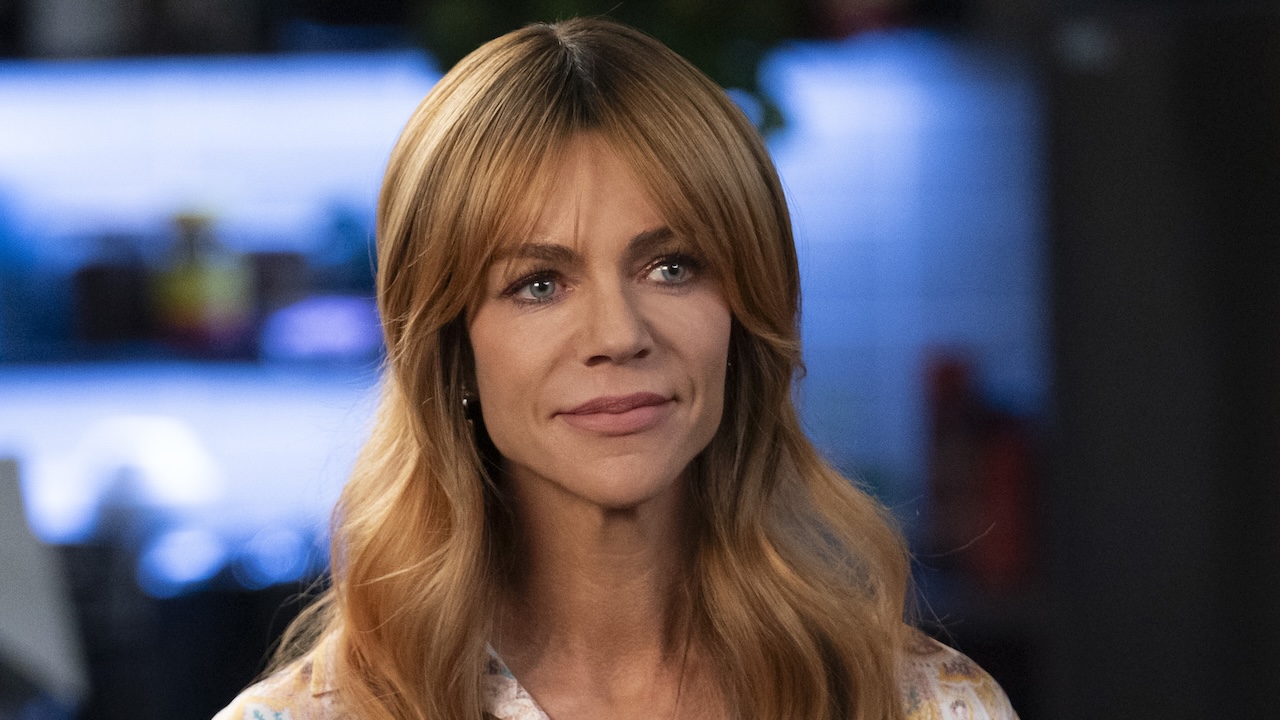How One Deleted Killmonger Line Totally Changed The Ending Of Black Panther

SPOILER WARNING: The following article contains major spoilers for the ending of Black Panther**. If you have not yet seen the film, continue at your own risk.**
Ryan Coogler's Black Panther had one of the most beautiful and impactful endings of any movie in 2018. Not only does the whole story come full circle in an incredible way, but it's a conclusion that also fully satisfies the themes of the film and the arc of the titular hero. It really is perfect -- which is why it may surprise you to learn not only how late in the process it all came together, but also that the whole thing was changed because of a deleted line of dialogue from Michael B. Jordan's Erik Killmonger shortly before his death.
This fascinating story about the filmmaking process comes from an interview that I did with Black Panther editor Michael Shawver last week -- specifically during a discussion about how reshoots wound up shaping the blockbuster into the movie we know. He explained that the United Nations scene (now featured in the mid-credits) was the original end of the film, but input from co-editor Debbie Berman made him and Ryan Coogler realize they were missing a scene where the lesson of the story was fully realized for the hero. Tracing this idea back, they discovered a specific problem in Killmonger's final moments. Said Shawver,
With reshoots Ryan wanted to do a new ending, and it's a whole bigger thing with the scene where Killmonger dies... What we shot originally, and in the script, was Killmonger saying 'It's beautiful, but what are you going to do for everybody in the world who can't see this?'... And it was great. It was powerful, it was awesome, but it was problematic for a few reasons. One, we realized that just as a character, for the journey of T'Challa, he can't get the answer to the movie and what he needs to do from the villain - like straight-up exactly what he needs. And that's kind of what was happening. Secondly, it was a great performance, and [Michael B. Jordan] brought it, and it was painful to watch because you kind of don't want this guy to die, but it didn't fit his character.
It's not great when one of the final scenes in your movie doesn't allow proper endings for both your hero and your villain, but the good news is that this revelation was made prior to reshoots, allowing the Black Panther filmmakers time to think of an idea and fix it.
Fortunately, Ryan Coogler and Michael Shawver are long time collaborators -- the latter having cut all three of the former's features -- and that experience turned out to be crucial in fixing the issues. The duo apparently have a habit of watching scenes from classic movies and browsing filmmaker videos on YouTube while they are working, and it was through this part of their process that they ultimately discovered the answer to their problem. As Shawver noted, it all came down to understanding what makes the greatest movie endings of all time so great:
One thing that we did was looking at all those Top 10 lists of best endings ever for movies, and we found in a lot of these videos it was one of two things: it was either the twist ending... or it was The Godfather... Basically, the first time you meet Michael, he's with Kay and he's telling her he's not like his family. 'That's not me, Kay. That's them.' The last scene we see him, he's telling Kay he's not like his family... But then he walks and the door shuts, and you know everything is different. But it's the same conversation! And so it's the circular nature why those kinds of endings feel like closure even though it's open-ended.
Coming to this revelation sent Ryan Coogler off to write a new ending for Black Panther -- one that would take the story back to exactly where it started: Oakland, California, and the childhood home of Erik Killmonger. In the new scene, T'Challa (Chadwick Boseman) and Shuri (Letitia Wright) not only explain how their nation's influence is going to start changing the world, with refurbishment projects and outreach programs, but we even get a special peek at what that influence is going to mean for the people who have lived their lives without Wakandan resources.
This scene was exactly what the film needed. Not only was the villain no longer telling the hero exactly what he needed to do, but audiences got to actually see T'Challa actively learn a lesson from the story and start work on the ground level instead of just making a speech at the United Nations. It's really a perfect example of showing instead of telling, as Michael Shawver explained,
Your Daily Blend of Entertainment News
Ryan went off in his lab and did his brilliant work that he does as a writer, and wrote the final scene in Oakland where he goes with Shuri and shows the Royal Talon fighter to those kids, and specifically a kid that kinda looks like a young Killmonger. Basically, him showing them that, and buying those buildings, and the Wakandan Outreach Program was in spirit what originally we had Killmonger tell him. 'If people can just see this. If people can see their own potential then things would be different.' And so that was done in a new scene where we see what T'Challa has done. And then at the very, very, very end, the last line is that kid looking at him and saying, 'Who are you?' And that is the theme of the movie, of identity. Who are you? And he doesn't need to answer it, because he just answered it for us.
So the next time you see or hear someone fretting about a movie going through reshoots, tell them about this story. Rather than automatically being a sign that things have gone terribly wrong behind the scenes of a project, additional photography can be a process utilized to make a great film even better, and Black Panther is a perfect example.
Following its theatrical release early last year, the 18th feature from Marvel Studios is now available for anyone to watch on home video -- either digitally or via 4K, Blu-ray and DVD -- and it also happens to very much be a contender in this year's awards race. As such, we'll surely be writing a lot more about the movie in the coming weeks, including more from my interview with Michael Shawver, so stay tuned here on CinemaBlend.

Eric Eisenberg is the Assistant Managing Editor at CinemaBlend. After graduating Boston University and earning a bachelor’s degree in journalism, he took a part-time job as a staff writer for CinemaBlend, and after six months was offered the opportunity to move to Los Angeles and take on a newly created West Coast Editor position. Over a decade later, he's continuing to advance his interests and expertise. In addition to conducting filmmaker interviews and contributing to the news and feature content of the site, Eric also oversees the Movie Reviews section, writes the the weekend box office report (published Sundays), and is the site's resident Stephen King expert. He has two King-related columns.
